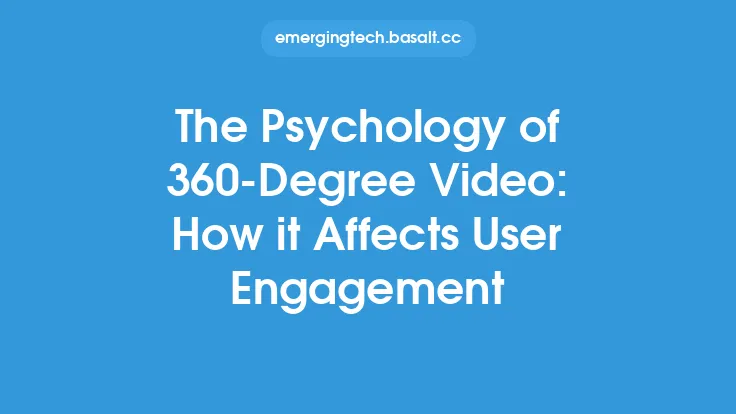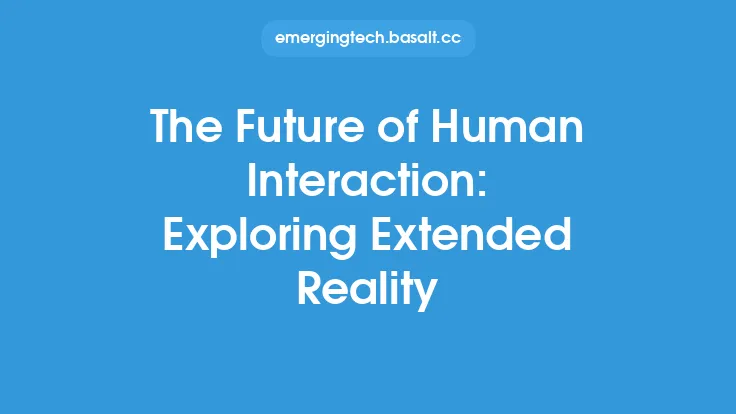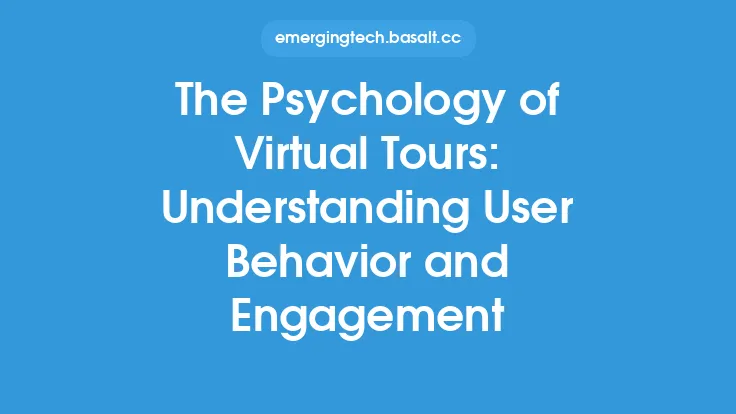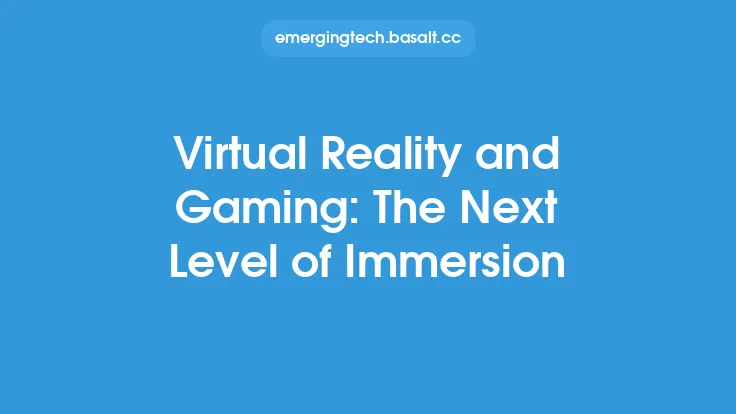The concept of virtual reality (VR) has been around for decades, but it's only in recent years that it has become a mainstream technology with the potential to revolutionize various aspects of our lives. As VR continues to advance and become more accessible, it's essential to understand its psychological effects on the human mind. This article will delve into the psychology of virtual reality, exploring how it affects our perception, cognition, emotions, and behavior.
Introduction to Virtual Reality Psychology
Virtual reality psychology is a relatively new field of study that focuses on the psychological effects of VR on humans. It's an interdisciplinary field that combines psychology, computer science, neuroscience, and philosophy to understand the complex interactions between humans and virtual environments. Researchers in this field aim to uncover the underlying psychological mechanisms that govern our experiences in VR, including our perceptions, emotions, and behaviors. By understanding these mechanisms, we can design more effective and engaging VR experiences that promote positive outcomes, such as improved learning, enhanced well-being, and increased empathy.
Perception and Cognition in Virtual Reality
One of the primary concerns in VR psychology is how our brains process and interpret virtual information. Research has shown that our brains can be tricked into believing that virtual experiences are real, a phenomenon known as "presence." Presence refers to the feeling of being fully immersed in a virtual environment, which can be measured using various physiological and psychological indicators, such as heart rate, skin conductance, and self-reported measures of immersion. The sense of presence is influenced by various factors, including the quality of the virtual environment, the level of interactivity, and the individual's prior experiences and expectations.
Cognitive processes, such as attention, memory, and decision-making, are also affected by VR. For example, studies have shown that VR can enhance our ability to focus attention and improve our memory for virtual events. However, VR can also lead to cognitive biases and errors, such as the "protagonist effect," where individuals overestimate their own abilities and performance in virtual environments. Understanding these cognitive effects is crucial for designing effective VR training programs, educational experiences, and therapeutic interventions.
Emotional and Social Aspects of Virtual Reality
Virtual reality can elicit strong emotions, ranging from excitement and joy to fear and anxiety. The emotional impact of VR is influenced by various factors, including the content and context of the virtual experience, the individual's personality and emotional state, and the level of social interaction. Social interactions in VR, such as virtual teamwork and collaboration, can be particularly effective in promoting social skills, empathy, and cooperation. However, VR can also lead to social isolation and decreased empathy if not designed carefully.
Emotional regulation is another critical aspect of VR psychology. Research has shown that VR can be used to regulate emotions, such as reducing stress and anxiety, and improving mood. However, VR can also lead to emotional overload and decreased emotional regulation, particularly if the virtual experience is too intense or overwhelming. Understanding the emotional and social aspects of VR is essential for designing effective VR experiences that promote positive emotional outcomes and social connections.
Behavioral and Neuroscientific Aspects of Virtual Reality
Virtual reality can also influence our behavior, including our motor skills, habits, and decision-making. For example, studies have shown that VR can improve our motor skills, such as balance and coordination, and enhance our ability to learn new habits and behaviors. However, VR can also lead to behavioral addiction and decreased physical activity if not designed carefully.
Neuroscientific research has also shed light on the neural mechanisms underlying VR experiences. Functional magnetic resonance imaging (fMRI) and electroencephalography (EEG) studies have shown that VR activates various brain regions, including the visual cortex, hippocampus, and prefrontal cortex. These brain regions are involved in perception, memory, emotion regulation, and decision-making, and are critical for our ability to navigate and interact with virtual environments. Understanding the neural mechanisms underlying VR is essential for designing effective VR experiences that promote positive behavioral and cognitive outcomes.
Applications and Implications of Virtual Reality Psychology
The applications and implications of VR psychology are vast and varied. VR can be used in therapy and treatment, such as exposure therapy for anxiety disorders and PTSD. VR can also be used in education and training, such as medical simulation and virtual labs. Additionally, VR can be used in entertainment and gaming, such as immersive gaming experiences and virtual reality movies.
However, there are also potential risks and challenges associated with VR, such as addiction, social isolation, and decreased physical activity. Understanding the psychological effects of VR is essential for mitigating these risks and promoting positive outcomes. By designing VR experiences that are engaging, interactive, and socially responsible, we can harness the potential of VR to improve our lives and promote positive social change.
Conclusion
In conclusion, the psychology of virtual reality is a complex and multifaceted field that requires an interdisciplinary approach. By understanding the psychological effects of VR on perception, cognition, emotions, and behavior, we can design more effective and engaging VR experiences that promote positive outcomes. As VR continues to advance and become more accessible, it's essential to prioritize the psychological and social implications of this technology. By doing so, we can ensure that VR is used in a way that promotes positive social change, improves our well-being, and enhances our humanity.





